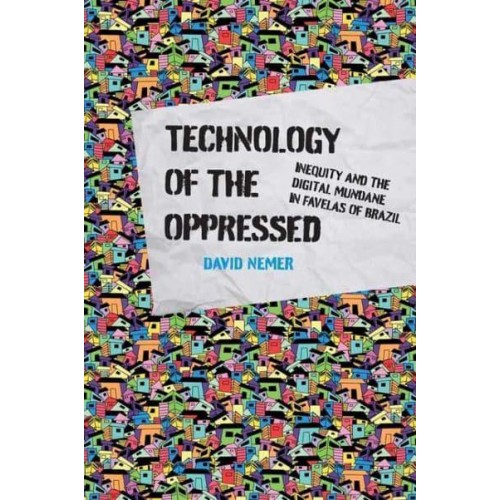Your shopping cart is empty!
Welcome visitor you can login or create an account.
Technology of the Oppressed Inequity and the Digital Mundane in Favelas of Brazil - The Information Society Series
Publisher: The MIT Press
Author: David Nemer
$35.64
Publisher:
The MIT PressAuthor:
David Nemer Brazilian favelas are impoverished settlements usually located on hillsides or the outskirts of a city. In Technology of the Oppressed, David Nemer draws on extensive ethnographic fieldwork to provide a rich account of how favela residents engage with technology in community technology centres and in their everyday lives. Their stories reveal the structural violence of the information age. But they also show how those oppressed by technology don't just reject it, but consciously resist and appropriate it, and how their experiences with digital technologies enable them to navigate both digital and nondigital sources of oppression-and even, at times, to flourish. Nemer uses a decolonial and intersectional framework called Mundane Technology as an analytical tool to understand how digital technologies can simultaneously be sites of oppression and tools in the fight for freedom. Building on the work of the Brazilian educator and philosopher Paulo Freire, he shows how the favela residents appropriate everyday technologies-technological artifacts (cell phones, Facebook), operations (repair), and spaces (Telecenters and Lan Houses)-and use them to alleviate the oppression in their everyday lives. He also addresses the relationship of misinformation to radicalization and the rise of the new far right. Contrary to the simplistic techno-optimistic belief that technology will save the poor, even with access to technology these marginalized people face numerous sources of oppression, including technological biases, racism, classism, sexism, and censorship. Yet the spirit, love, community, resilience, and resistance of favela residents make possible their pursuit of freedom. Series Overview: The Information Society Series publishes original scholarship addressing the social, legal, and political implications of the Internet and new information and communication technologies. The series features empirical and scholarly research from the growing global ranks of interdisciplinary scholars in fields of inquiry such as information studies; communication and media studies; science, technology, and society; and law, technology, and culture. Publications address contemporary issues and controversies in global information and communication technologies and uncovers the values and interests at stake in the design, implementation, and usage of these technologies. Series publications are grounded in scholarly and empirical inquiry and have a strong normative overlay, seeking to advance new ideas and solutions to global problems in technology and society. Series authors address challenging topics at the intersection of information technology and culture such as privacy, freedom of expression, reputation, knowledge production, accessibility, Internet governance, equality, and identity.
| ISBN: | 9780262543347 |
| Publisher: | The MIT Press |
| Imprint: | The MIT Press |
| Published date: | 08 Feb 2022 |
| DEWEY: | 303.48330981 |
| DEWEY edition: | 23 |
| Language: | English |
| Number of pages: | xi, 218 |
| Weight: | 330g |
| Height: | 152mm |
| Width: | 230mm |
| Spine width: | 19mm |
Write a review
Your Name:Your Review: Note: HTML is not translated!
Rating: Bad Good
Enter the code in the box below:
Discount
$131.92 $127.98





















